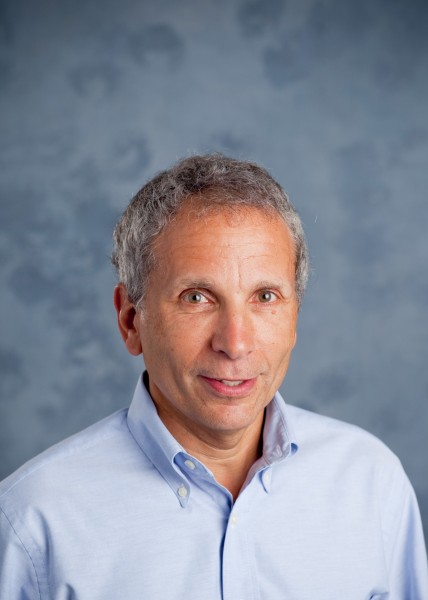
24 Dec To Your Health: Headed to the Airport? Don’t Touch This!
Dr. Alan Safdi, a world-renowned internist and gastroenterologist with encyclopedic knowledge of mind-body wellness and preventative medicine, returns to Telluride Inside… and Out with a series of posts under the banner of “To Your Health.” His blogs will feature the most current information in his field: healthy, wellness and longevity. He continues this week having curated a story from MDLinx about health hazards for the holiday traveler. (Funding for the research was provided by the European Union’s Seventh Framework Programme.)
Related learning will be showcased in three-day seminars Safdi and his partner, radiologist Dr. William Renner, are offering this winter at The Peaks Resort & Spa in Mountain Village to medical professionals, whose participation qualifies them for at least 16 hours of Category 1 CME or CEU credits. The general public is also always welcome.
Subjects under discussion at the symposiums will answer other questions such as: What are the risks and rewards of supplements, including multivitamins? Should women be getting regular mammograms? What are the alternatives on the horizon for breast cancer screening? These and other important health-related subjects – micro-nutrients, common medical disorders and nutrition – will be addressed, revealing findings, not opinions, from evidence-based medical research.
For further information, email telluridecme@gmail.com. or go to Safdi’s Telluride Longevity Institute website. And please scroll down to find out about Dr. Safdi’s Live Longer Retreat wellness intensives planned for this coming summer also at The Peaks.

Security bin: germ central.
Airports will see thousands of travelers pass through their gates this holiday season—and all of these passengers will carry tiny stowaways in the form of bacteria, viruses, and other pathogens. These nasty little bugs end up on the surfaces you touch, the foods you eat, and the air you breathe. Considering this, which surface at the airport—something that you’ll almost certainly come in contact with—is the most contagious? It’s not the armrest of the chair in the waiting area, or the touchscreen on the check-in kiosk, or even the lock on the toilet stall.
The most infectious thing you’ll inevitably handle at the airport is the plastic bin that you put your shoes, laptop, or phone into when you go through security, according to public health and epidemiology experts in a study published in BMC Infectious Diseases.
Consider that you probably grab your phone from that grungy bin and use it right away—placed against your face and mouth.
“Security check trays appear to pose the highest potential risk and are used by virtually all embarking passengers; they have the potential to be especially problematic if a severe pathogen with an indirect transmission mechanism were to pose a threat for international spread,” wrote the authors, led by virology expert Niina Ikonen, Department of Health Security, National Institute for Health and Welfare, Helsinki, Finland.
Other pathogen-infested surfaces included shop payment terminals, staircase rails, passport-checking counters, toys found in children’s play areas, and the air itself.
Infectious diseases take flight
“International and national traveling has made the rapid spread of infectious diseases possible,” wrote Ikonen and coauthors. “Surprisingly, little research has been done on the transmission of respiratory infections—including seasonal influenza as well as pandemic threats—in airports and other travel hubs,” they noted.
For this study, the investigators sought to identify and quantify respiratory viruses on frequently touched surfaces in airports. During the winter of 2016, they swabbed a variety of surfaces at Finland’s busy Helsinki Airport (which handled more than 20 million passengers in 2018).
They found at least one respiratory virus on at least 10% of surfaces they tested. The most common one was rhinovirus (on 40% of infected surfaces), followed by coronavirus (30%), adenovirus (20%), and influenza A (10%). Surprisingly, no respiratory viruses were found on the toilet or toilet stall surfaces.
“This study supports the case for improved public awareness of how viral infections spread,” said study author Jonathan S. Nguyen-Van-Tam, MD, PhD, professor of health protection, School of Medicine, Division of Epidemiology and Public Health, University of Nottingham, Nottingham, United Kingdom.
“People can help to minimize contagion by hygienic hand washing and coughing into a handkerchief, tissue or sleeve at all times but especially in public places,” he added. “These simple precautions can help prevent pandemics and are most important in crowded areas like airports that have a high volume of people traveling to and from many different parts of the world.”
So, cough or sneeze into your handkerchief, tissue or sleeve—but not into the plastic bin at airport security.
Dr. Safdi, more:

Dr. Alan Safdi
And back by popular demand, this summer, in partnership with the Peaks’ Spa, Dr. Safdi is once again offering three, week-long wellness intensives titled Live Longer Retreat.
Again, using an evidence-based, scientific approach to health and longevity and featuring an experienced staff of medical professionals, personal trainers, Pilates and yoga instructors, dietitians, and chefs, the focus is on your unique wellness profile. Each Live Longer Retreat is one-of-kind in the U.S. Those intensives, limited to only 10 – 15 participants, will include personal consultations, hiking, spinning, yoga, Pilates, talks and demonstrations related to nutrition, cooking classes, and more.
Go here to read a review of the experience by one very satisfied participant.
Feel free to sign up now to participate in a Live Longer Retreat – or call 1-877-448-5416 for further information.
The following two tabs change content below.


Sorry, the comment form is closed at this time.